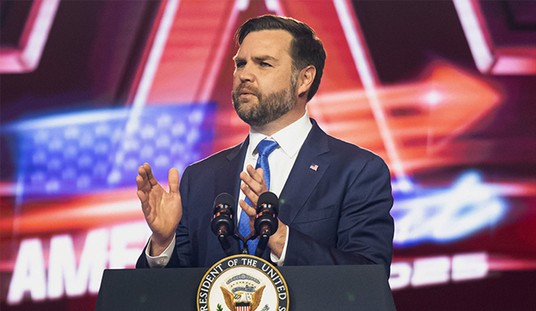WASHINGTON – Republicans continue to launch complaints about the Consumer Financial Protection Bureau’s (CFPB) rulemaking and regulation enforcement, saying the agency needs more transparency and cost-benefit analysis of rules.
Meredith Fuchs, CFPB general counsel, testified before the House Financial Services Committee along with officials from the Federal Insurance Corporation, Federal Reserve, National Credit Union Association, and Office of the Comptroller of the Currency.
While the hearing was intended to examine the economic consequences of regulatory action by these federal agencies, CFPB was the main focus of the hearing.
Committee Chairman Jeb Hensarling (R-Texas) said the CFPB should refrain from new adopting regulations unless it determines that the benefits of the rules outweigh their costs.
Many Democrats on the committee have opposed cost-benefit analysis of legislation, calling it “dangerous.” They argue that cost-benefit analysis would hinder the work of regulators and roll back some of the Dodd-Frank Act provisions.
“Democrats have harshly criticized cost-benefit analysis. Looking at the pluses and minuses of a rule, the impact on jobs, asking the question whether a rule on balance helps or harms hardworking, struggling American families,” Hensarling said. “I believe what is ‘dangerous’ is sweeping under the rug the mounting evidence that many rules promulgated under Dodd-Frank Act and its ideological precursor, the CARD Act, are harming consumers.”
Rep. Maxine Waters (D-Calif.), who is a strong supporter of the CFPB, said cost-benefit requirements do nothing more than “undercut the ability of our regulators to do their jobs.” She called the hearing “the latest chance for the majority to air its ideologically-driven regulatory agenda.”
Waters defended federal regulators for putting the financial system on a more stable footing after the recent financial crisis.
“Excessive borrowing, risky investments…put us on the path to crisis — not federal regulators,” the California Democrat said. “Although Washington had a role to play, it certainly was not because regulators erred on the side of overregulation.”
The CFPB was created as part of Dodd-Frank in response to the 2007 financial crisis. The bureau was established to regulate financial markets for consumer financial products and services.
Since the CFPB’s inception, Republicans have tried to rein in the bureau by passing legislation and by attacking the agency on various fronts, including the CFPB’s mortgage-lending rules, its push to combat auto-lending discrimination, and its lack of transparency.
The CFPB announced last year that it would hold accountable lenders that offer auto loans through dealerships that are caught charging higher variable interest rates to minorities, women, or other protected classes of buyers.
According to a report by the Center for Responsible Lending, dealers in many cases charge black and Latino borrowers higher rates than white borrowers who have the same or similar incomes and credit scores.
The CFPB relies on disparate impact theory to determine whether unintentional discrimination has taken place.
Members of the panel wondered how the CFPB could impose a discrimination standard on lenders, while at the same time facing accusations of widespread racial and gender-based discrimination within the agency.
“You certainly create the impression that you are trying to impose a standard on others that you can’t live up to yourself,” Hensarling said.
Ally Financial paid $98 million in December to settle accusations that it had discriminated against minority borrowers, becoming the first lender to be charged of conducting discriminatory practices in auto lending.
Auto dealers and banks are still unclear about how the CFPB determines whether systematic unfair lending practices have been employed, several members of the panel said.
“What we have here, the situation that the CFPB has placed our auto dealers in is no man’s land. We sorta got them in a situation where they’re guilty if they do, guilty if they don’t,” said Rep. David Scott (D-Ga.).
Rep. Sean Duffy (R-Wis.) said the CFPB has done a poor job at providing basic transparency into the agency’s closed-door advisory council meetings.
Duffy’s criticism comes after being denied permission to attend a private meeting of a CFPB advisory committee in February.
The CFPB has four of such advisory groups representing credit unions, community banks, a board consisting of consumer and business groups, and an academic research council.
While the agency does hold some public hearings, it is not required to open up such meetings to the public. This is because it is part of the Federal Reserve, which is exempt from federal law governing the behavior of federal advisory committees.
In 2011, officials at the CFPB touted the value of transparency in a blog post titled “Keeping it Sunny at the CFPB.”
“What do tap water, your eyeglasses, and the Consumer Bureau all have in common?” the agency’s post read. “They’re all better when they’re transparent!”
Duffy said the agency is not living up to its promise.
“Dirty water is annoying, dirty glasses are annoying, and a dirty CFPB is really annoying,” Duffy said. “If you’re not transparent, which you have claimed the CFPB would be – and you’re not – it is of great concern to this committee.”
Duffy questioned the agency’s need for secrecy, saying that the issues handled by the CFPB do not require as much confidentiality as the Fed’s interest rate policy, or CIA covert operations.
“Let us see what kind of advice you’re getting [and] who is giving that advice,” Duffy said. “It would serve the public very well.”
At a hearing earlier this year, CFPB Director Richard Cordray said the agency needs to discuss some issues in private with members of the advisory board, so that “we can speak candidly about matters that are not yet public that the bureau is working on, including things like enforcement actions and the like.”









Join the conversation as a VIP Member